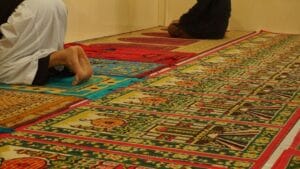Ramadan, the holiest month in Islam, is a time of fasting, prayer, reflection, and community. For Muslims worldwide, it’s an opportunity to deepen their faith, practice self-discipline, and grow closer to Allah. However, misconceptions about Ramadan fasting often circulate, causing confusion and unnecessary worry. These myths can discourage people from fully embracing the spiritual and physical benefits of the month. In this comprehensive guide, we debunk the most common Ramadan fasting myths with evidence-based facts, empowering you to thrive during this sacred time. From health concerns to spiritual practices, we’ll set the record straight and provide practical tips to make your Ramadan fulfilling and joyful.

Why Debunking Ramadan Myths Matters
Misinformation about Ramadan fasting can lead to fear, improper practices, or missed opportunities for spiritual growth. By addressing myths, we aim to:
- Clarify Misconceptions: Ensure you understand the true purpose and benefits of fasting.
- Promote Health: Provide science-backed advice to fast safely and effectively.
- Enhance Worship: Remove doubts that hinder your focus on prayer and reflection.
- Build Confidence: Equip you with knowledge to navigate Ramadan with ease.
This article combines Islamic teachings, scientific research, and practical insights to debunk myths and offer guidance for a thriving Ramadan in 2025. Let’s dive into the most shocking myths and the truths behind them.
Myth 1: Fasting During Ramadan Is Harmful to Your Health
The Myth: Fasting for long hours without food or water damages your body, leading to dehydration, nutrient deficiencies, or chronic health issues.
The Truth: When done correctly, Ramadan fasting is safe and can offer health benefits for most people. Studies show that intermittent fasting, like Ramadan, can improve metabolic health, reduce inflammation, and promote weight management.
- Scientific Evidence: A 2019 study in The Journal of Nutrition found that Ramadan fasting improved blood sugar control and lipid profiles in healthy adults. Another study in Frontiers in Nutrition (2021) noted reduced inflammation markers during fasting.
- Hydration: While you abstain from water during the day, proper hydration between iftar and suhoor prevents dehydration. Aim for 8–10 glasses of water during non-fasting hours.
- Nutrient Balance: Balanced meals at suhoor and iftar provide essential nutrients. Include complex carbs (e.g., oats), proteins (e.g., eggs), and healthy fats (e.g., avocados) to sustain energy.
Exceptions: People with medical conditions like diabetes, kidney disease, or pregnancy should consult a doctor or imam to determine if fasting is safe. Islam allows exemptions for those whose health is at risk (Quran 2:185).
Tip to Thrive: Start suhoor with hydrating foods like watermelon or cucumber, and break your fast with dates and water, following the Sunnah, to replenish energy quickly.
Myth 2: You Can’t Brush Your Teeth or Rinse Your Mouth While Fasting
The Myth: Brushing your teeth, rinsing your mouth, or even swallowing saliva breaks your fast, making it invalid.
The Truth: Basic oral hygiene does not invalidate your fast, as long as you don’t intentionally swallow water or toothpaste. Islamic scholars, including those from Al-Azhar and the Islamic Fiqh Council, confirm that rinsing the mouth or brushing teeth is permissible if no substance is ingested.
- Fiqh Clarification: The Prophet Muhammad (peace be upon him) encouraged maintaining cleanliness during fasting, including using the miswak (tooth-stick). Modern equivalents like toothbrushes are allowed.
- Practical Advice: Use a small amount of toothpaste and rinse carefully to avoid swallowing. If you’re concerned, brush before suhoor or after iftar, or use a miswak during the day.
Tip to Thrive: Keep a miswak handy for a Sunnah-compliant way to freshen your breath without worry. Avoid flavored mouthwashes during fasting hours to stay cautious.
Read more:
Myth 3: Fasting Makes You Too Tired to Work or Exercise
The Myth: Fasting drains your energy, making it impossible to work, study, or exercise effectively during Ramadan.
The Truth: While the first few days of fasting may feel challenging as your body adjusts, most people adapt and maintain normal activities with proper planning. Fasting can even boost mental clarity and focus once your body acclimates.
- Scientific Evidence: A 2020 study in Nutrients found that Ramadan fasting does not significantly impair cognitive function or work performance in healthy adults. Light exercise, like walking or yoga, can improve mood and energy levels.
- Energy Management: Eating nutrient-dense suhoor meals (e.g., whole grains, proteins) and staying hydrated prevents fatigue. Napping during the day, a Sunnah practice, also helps recharge.
- Exercise Timing: Schedule workouts after iftar or before suhoor to avoid dehydration. Low-intensity activities like stretching or a short walk are ideal during fasting hours.
Tip to Thrive: Plan your day to include a 20-minute nap after Dhuhr or Asr prayers, and opt for a brisk walk after iftar to stay active without overexertion.
Myth 4: You Must Eat Huge Meals at Iftar to Make Up for Fasting
The Myth: After fasting all day, you need to eat large, heavy meals at iftar to regain energy and nutrients.
The Truth: Overeating at iftar can lead to digestive issues, weight gain, and discomfort, counteracting the benefits of fasting. The Sunnah recommends moderation, starting with dates and water to gently break the fast.
- Islamic Guidance: The Prophet (peace be upon him) said, “The son of Adam does not fill any vessel worse than his stomach” (Tirmidhi). Small, balanced meals are best.
- Health Benefits: A 2022 study in Diabetes Research and Clinical Practice showed that moderate iftar portions improve insulin sensitivity and prevent blood sugar spikes.
- Meal Planning: Start with dates, water, or soup, then eat a balanced meal with vegetables, lean proteins (e.g., chicken), and complex carbs (e.g., brown rice). Avoid fried or sugary foods that cause sluggishness.
Tip to Thrive: Break your fast with 1–3 dates, a glass of water, and a light soup, then pray Maghrib before eating a full meal to pace your intake and aid digestion.
Myth 5: Fasting Is Only for Healthy Adults, Not Kids or the Elderly
The Myth: Ramadan fasting is mandatory only for healthy adults, so children, the elderly, or those with minor ailments must avoid it.
The Truth: While fasting is obligatory for healthy adults, children and the elderly can participate in ways that suit their capabilities, guided by Islamic rulings and medical advice.
- Children: Fasting is not mandatory until puberty, but kids can practice “mini-fasts” (e.g., fasting until noon) to learn discipline and feel included. This builds excitement for Ramadan without health risks.
- Elderly: Older adults who can’t fast due to chronic illnesses or frailty are exempt (Quran 2:184) and can offer fidyah (feeding a poor person for each missed day). Those in good health can fast with medical approval.
- Islamic Flexibility: The Quran emphasizes ease, stating, “Allah intends for you ease and does not intend for you hardship” (2:185). Consult an imam for rulings on exemptions.
Tip to Thrive: Encourage kids to fast for a few hours or skip snacks, rewarding them with small Eid gifts. For elderly relatives, involve them in non-fasting acts like dua, charity, or hosting iftars to stay connected to Ramadan.
Myth 6: You Can’t Take Medication or Use Inhalers While Fasting
The Myth: Taking any medication, including pills, injections, or inhalers, breaks your fast, forcing you to skip treatments during Ramadan.
The Truth: Islamic scholars, including the European Council for Fatwa and Research, permit medications that are medically necessary, especially if they don’t involve oral consumption. The priority is preserving health.
- Inhalers: Asthma inhalers (e.g., salbutamol) are allowed, as they deliver vapor to the lungs, not food or drink to the stomach.
- Injections: Non-nutritional injections (e.g., insulin, vaccines) do not break the fast, per majority scholarly opinion.
- Oral Medications: If unavoidable, taking pills may break the fast, but you can make up the fast later (qada) or pay fidyah if chronically ill. Consult a doctor to adjust medication timing to suhoor or iftar when possible.
Tip to Thrive: Discuss your medication schedule with a doctor before Ramadan to align doses with non-fasting hours. Keep an inhaler handy for asthma patients, and consult an imam for clarity on specific treatments.
Myth 7: Fasting Guarantees Weight Loss
The Myth: Fasting for 30 days automatically leads to significant weight loss, as you’re eating less overall.
The Truth: Weight loss during Ramadan varies depending on diet and lifestyle. Overeating at iftar or consuming high-calorie foods can lead to weight gain, not loss.
- Scientific Evidence: A 2021 study in Obesity Reviews found that Ramadan fasting results in modest weight loss (0.5–2 kg) for some, but weight gain is common if iftar includes fried foods or sweets.
- Balanced Eating: Focus on nutrient-dense foods like vegetables, lean proteins, and whole grains. Limit sugary drinks and desserts to maintain a calorie deficit.
- Activity: Light exercise, like walking after iftar, supports weight management and overall health.
Tip to Thrive: Plan iftar with a small portion of protein (e.g., grilled fish), a salad, and one carb source (e.g., quinoa). Avoid second helpings or late-night snacking to support healthy weight goals.
Myth 8: Spiritual Benefits of Fasting Are Automatic
The Myth: Simply fasting guarantees spiritual rewards, regardless of your actions or intentions during Ramadan.
The Truth: Fasting is a means to spiritual growth, but its benefits depend on intention (niyyah), behavior, and worship. The Prophet (peace be upon him) said, “Whoever does not give up false speech and evil actions, Allah is not in need of his leaving food and drink” (Bukhari).
- Islamic Teaching: Fasting should be paired with increased prayer, Quran recitation, charity, and good deeds to maximize rewards.
- Practical Steps: Set daily goals, like reading one juz of the Quran, performing extra salah (e.g., Tahajjud), or giving sadaqah. Avoid gossip, anger, or wasteful activities.
- Laylatul Qadr: Focus on the last 10 nights, especially Laylatul Qadr, for intensified worship, as its reward is “better than a thousand months” (Quran 97:3).
Tip to Thrive: Start each day with a sincere dua for a productive fast, and use apps like Ramadan Legacy or Quranly to track worship goals and stay motivated.
Practical Tips to Thrive During Ramadan
Now that we’ve debunked these myths, here are actionable tips to make your Ramadan healthy, spiritual, and fulfilling:
- Plan Meals Wisely:
- Suhoor: Oatmeal with nuts, eggs, and fruit for sustained energy.
- Iftar: Dates, water, soup, followed by a balanced meal with veggies and protein.
- Hydrate: Drink 8–10 glasses of water between iftar and suhoor.
- Prioritize Worship:
- Read 4–5 pages of the Quran daily to complete a khatam.
- Perform taraweeh prayers, even a few rak’ahs at home.
- Make dua during Laylatul Qadr for forgiveness and blessings.
- Stay Active:
- Walk or stretch after iftar to boost energy and digestion.
- Avoid strenuous workouts during fasting hours to prevent dehydration.
- Manage Time:
- Use apps like Muslim Pro or Athan for prayer and fasting reminders.
- Schedule naps or rest periods to combat fatigue.
- Give Back:
- Donate to a charity or volunteer at a local food drive.
- Share iftar meals with neighbors or those in need.
- Seek Community:
- Join mosque events or virtual iftars to connect with others.
- Involve family in worship, like reading Quran together.
Addressing Special Cases
- Travelers: If traveling, you’re exempt from fasting but must make up missed days later (Quran 2:184). Use apps like Zabihah to find halal food and mosques on the go.
- Women on Menstruation: Women who can’t fast during menstruation can engage in dhikr, dua, or charity. Apps like Athan Pink offer tailored reminders for non-fasting days.
- Chronic Illness: If fasting is harmful, pay fidyah or consult an imam for alternatives. Focus on other worship acts to stay spiritually engaged.
Conclusion: Embrace Ramadan with Confidence
Ramadan is a month of mercy, growth, and transformation, and debunking these myths ensures you approach it with clarity and confidence. Fasting is not only safe but beneficial when done mindfully, supporting both physical health and spiritual renewal. By brushing aside misconceptions—whether about health, hygiene, or spiritual rewards—you can focus on what truly matters: strengthening your connection with Allah, practicing compassion, and growing as a person.
As Ramadan 2025 approaches, use these truths and tips to prepare your body, mind, and soul. Plan balanced meals, prioritize worship, and lean on community and technology to stay organized. With the right mindset and knowledge, you’ll thrive this holy month, experiencing its blessings to the fullest. May your Ramadan be filled with peace, productivity, and profound faith.
Have you heard other Ramadan myths? Share them below, or tell us how you’re preparing to thrive this holy month!














Post Comment